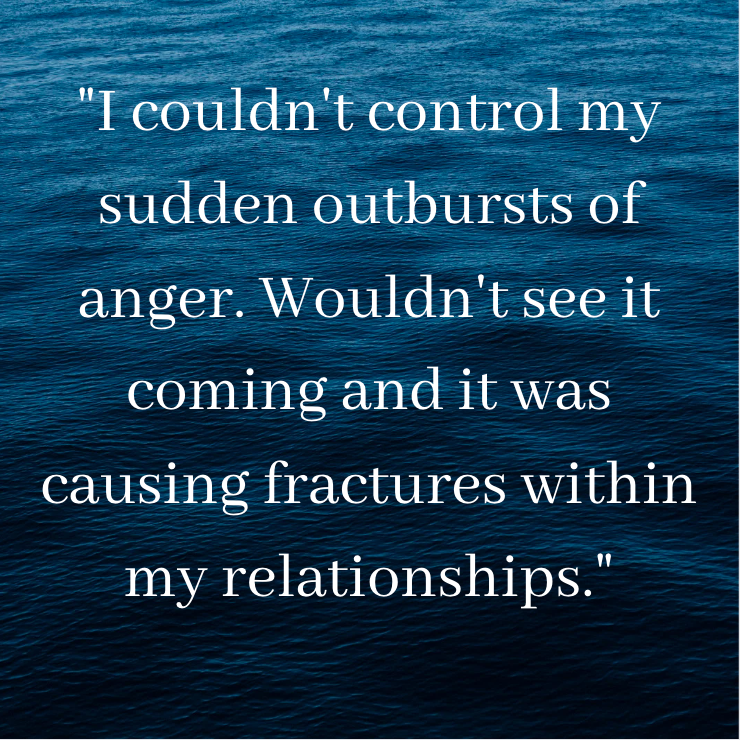Blessings to you!
How has this past week been?
This week both of us, on two separate trips, got stuck in two separate airplane travel nightmares. Complete with perpetually delaying flights, canceled flights, late-night ride service cruises to random hotels, and even a carpool with complete strangers through the Montana wilderness. One of our planes even made it to the literal airspace over our town, circled for nearly an hour, and then turned around and went aaaallllllll the way back to the departure airport!
You can imagine the uproar on that plane...
You could see Survival reactivity ripple through the rows up and down the aisle:
• The passengers that lean toward Survival Fight during moments of stress were actually yelling aloud at the pilot (and then the flight attendants, and then fellow passengers!).
• Those that tend toward Survival Flight were instantly booking rental cars, immediately ready to drive 9 hours instead of waiting to find out anything more.
• Passengers that lean toward Survival Freeze truly pulled up their hoodies and went back to sleep.
• People that lean toward Survival Appease were harder to identify, but later after deplaning, one passenger ordered a sandwich by saying: "If it's not too much trouble, do you think I could possibly get a Turkey Club?"
And that, folks playing along at home,
is a Survival Reactivity Bingo!
Here at the Center, we typically run longterm comprehensive trainings to help successful people all over the world rewire their brains to be better at feelings, so that they can move from emotional overwhelm to Emotional Sovereignty, and finally have the life of their dreams. But occasionally, we run short intensives applying the same rewiring tools to specific areas. These are stellar for trying out the techniques we teach without committing to a larger investment of time.
Based on the airplane story, you'd think the class coming up would be about managing Survival reactivity during travel! Maybe we'll run one for that soon, but this next one, is about managing Survival reactivity during intimacy.
Because unfortunately for many of us
physical intimacy can sometimes feel as stressful as travel fiascos.
Many of us have had negative early experiences having to do with our bodies, our vulnerability, and our safety. So even though we would prefer it didn't, when intimacy is on the horizon, our nervous system may run its threat response protocol.
We go into Survival Fight:
• grimacing at the thought of intimacy
• tensing up at the slightest touch
• finding fault in our partners interests and moves
We go into Survival Flight:
• avoiding intimacy by staying busy or staying away
• thinking of other things during intimacy
• getting inebriated in order to semi-enjoy intimacy (or too inebriated to be present)
We go into Survival Freeze:
• becoming so incapacitated via sleepiness, drugs, alcohol, or depression that intimacy isn't possible
• letting physicality happen against our interests
• leaving our bodies so that we can endure intimacy
We go into Survival Appease:
• being physical just to please our partners or stay safer with them
• participating in forms of intimacy that are wrong for us because we understand it to be right for them
• never knowing what our own interests are because our interests are secondary
During our recent travel troubles we were pulling out all the tools we have, and that we teach in our classes, so that we didn't spin out into Survival reactivity. We wanted to think clearly, stay in connection with ourselves and others, and we wanted to have a good time.
And lucky for us all,
this same toolset can be used whether we're in the airport or the bedroom.
If you love the idea of applying the trusty tools you've already gathered with us to new and exciting areas, the Snuggle Class might be super fun and useful for you!
If you don't have any tools yet or haven't had a chance to take a live course with us, the Snuggle Class could be the ideal low-investment place to start!
And if you just love reading these letters and enjoy identifying Survival reactivity in all the places it pops up, feel free to write us back! We love every note and every laughing emoji.
In any case and always, we wish you safe, sweet, and easy travels! And we're already looking forward to whenever and however we get to see you down the road.
Love,
Natalie and Nathan
March 9th and 10th
$350



























